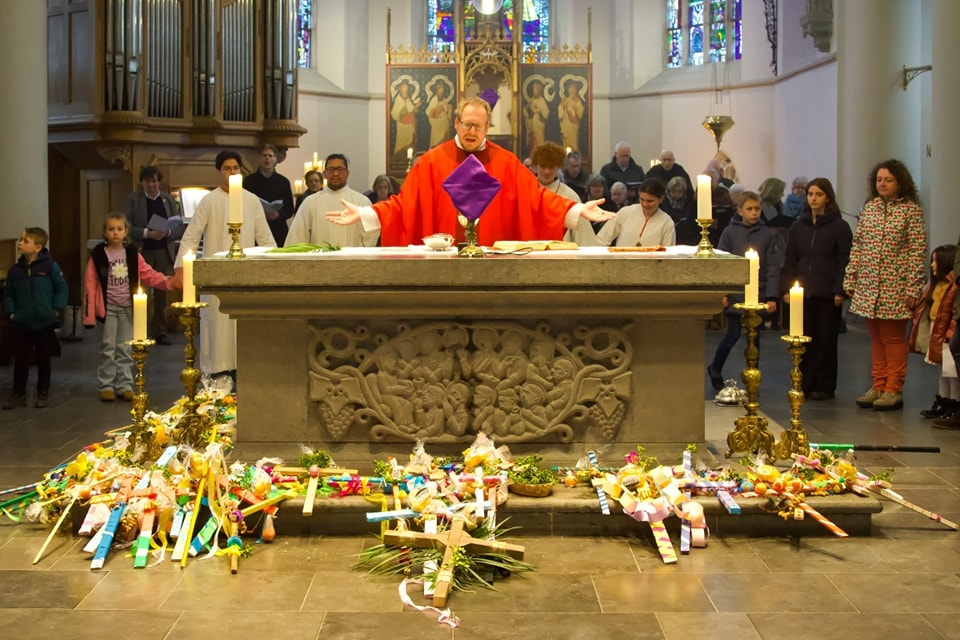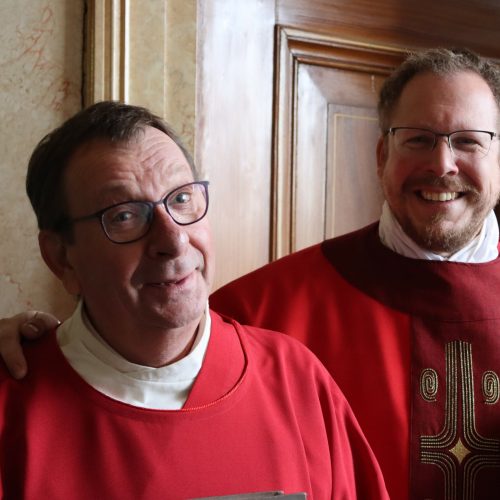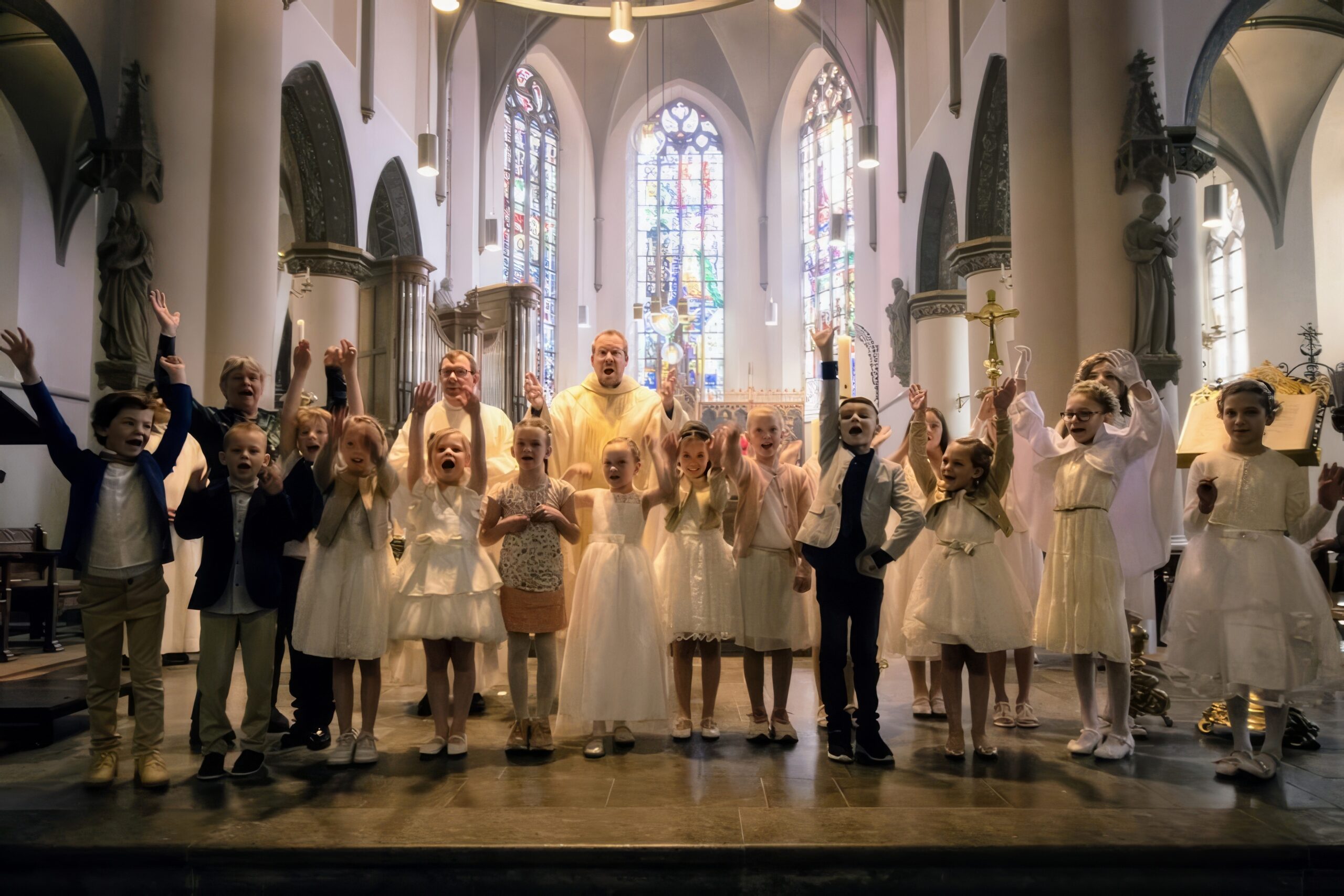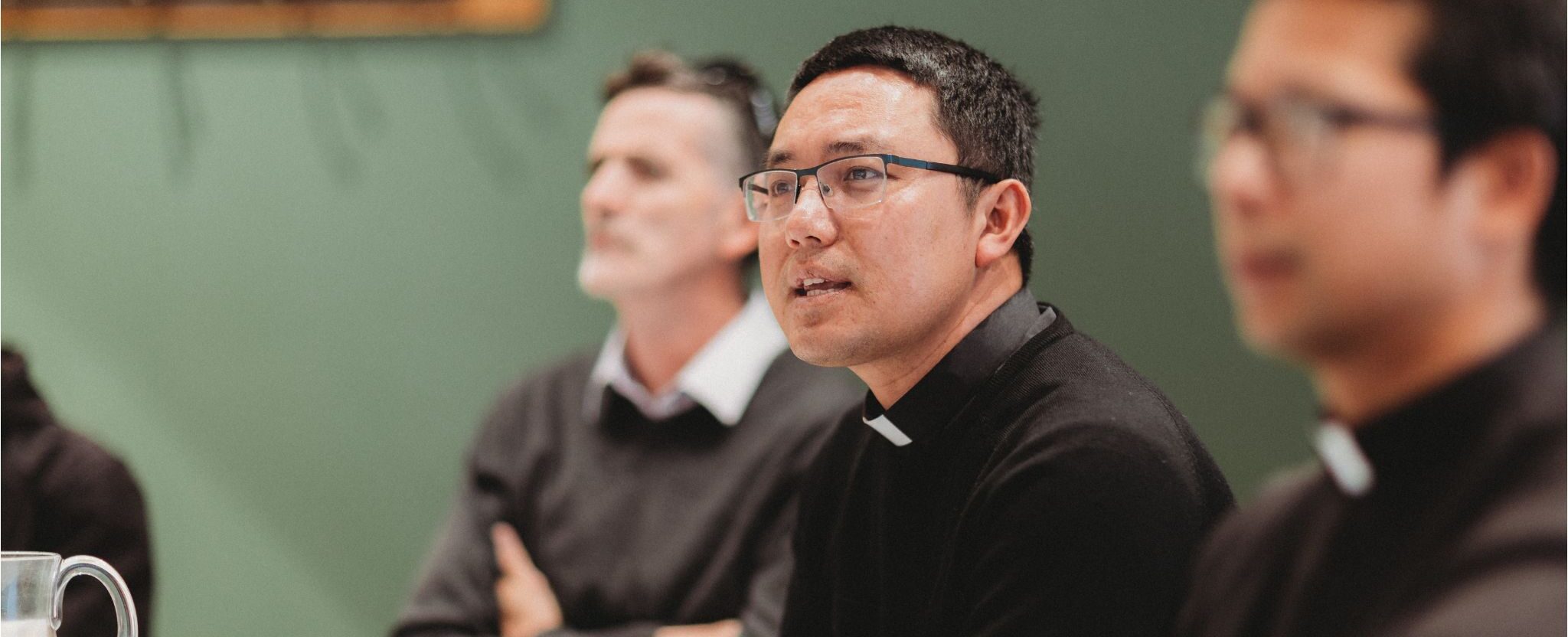
"...no one puts new wine into old wineskins; otherwise the new wine will burst the skins and will be spilled, and the skins will be destroyed. But new wine must be put into fresh wineskins."
Luke 5:37-38 NRSVCE Tweet
Jacqueline Marie | Oct. 17, 2024
Father Jochem Van Velthoven has been intensely pursuing parish renewal for the last three years at Catharina Parochie in Oosterhout, Netherlands. He has established a leadership team, set in place a regular cycle of Alpha for evangelization, and even created “The Journey of Hope,” a program facilitated by his lay leaders, to pass on the missional principles of DR to his parishioners.
But on June 16th, Father Jochem could not get out of bed.
He recalls the moment: “I had to call a colleague – I said, ‘Hello, I’m here but I cannot do anything. So please do what you have to do.’ And so for 28 hours I was lying down in my bed.”

He thought he was rested – he had just returned home to his parish after a relaxing week away with his parents. He thought he could return to his regular sprint pace with things booked every hour – but instead, “I was just lying on the bed, and I can only say short prayers.” He reflects, “I’d say thank you Lord. Thank you Lord that you are here.” He was only able to get out of bed to say Mass in his private chapel, “ …that was the only thing I could do. I didn’t eat, I didn’t drink. I was not ill. I didn’t have a bad stomach, or a headache.”
When he was able to get up, he connected with his Bishop, his spiritual director, his doctor… all of whom supported him and even indicated they had seen this burnout coming.
Father Jochem had not.
The collapse felt like a shock — before his vocational call to the priesthood, Father Jochem had a high-pressure job as a successful auditor at PriceWaterhouseCoopers (PwC) – yet he had not experienced anything like this burnout before – “never” he says. It was like the weight “of the maintenance Church was falling down on me.”

Father Jochem not only leads his parish of six churches but also: administrates the neighbouring parish that currently has no priest, oversees two congregations (Sisters of St. Francis), and does a variety of management tasks for the diocese related to the sale of a closed church building and a redevelopment of another property.
Father Jochem relates that he has now learnt, “I cannot keep that spirit and that speed in my life…I was very shocked.” After trying to hold up the weight of so many projects and responsibilities, he found, “now it really fell on me and I said, ‘OK. I’m stuck. It took some time to take the big stones off me, but the dust is now clearing up. I never lost the Spirit. So, I’m happy for that. But it was a great warning. It was a great warning.”
“Now that we have grown as a leadership team, people also have grown in their responsibilities and also have a better understanding of what a parish priest in a missionary parish has to do.”
Father Jochem Tweet
When he was an auditor at PwC, the slogan was “grow or go” which meant “you don’t show your weakness, your vulnerability.” Recovery from burnout has carried the gift of a new view: the opposite is true in healthy parish leadership, vulnerability and relying on your team is paramount. He has had to let go of control on things that were not imperative for him to oversee: “my parish, for the first time really had to come into action to take over tasks from me.”
As he has learned to rely on his leadership team, they have stepped into their callings as leaders. Father Jochem said now they pray together, meet together and discern together. The weight on him has shifted.
“Last Monday we had a parish meeting,” Father Jochem beams, “a meeting of disciples of Jesus from the whole parish.” He said to them “OK, standing here is your parish priest and I’m standing here as a joyful and relaxed priest because I also have a leadership team.”
“All kinds of fishes are jumping into our boat"
Father Jochem Tweet
“So, they [the leadership team] are helping me very well and also the working group of the missionary parish…I gave them their own responsibility and they also have taken up that responsibility.”
The fruit is evident – just this morning, Father Jochem met with the mayor. Oosterhout is a highly secularized town where less than 1% of Catholics even attend Mass. The mayor said, “We all knew that you [the Church in the Netherlands] were dead.” Yet, he was confused by all the activity happening in the last couple of years in the parish. He said to Father Jochem, “You are involved in the community; we see you everywhere. Then you open the newspaper and again you’re there.” He asked Father Jochem, “What’s going on over there [at the Basilica]?” Father Jochem was delighted to share and the mayor was openly supportive.
The parish is also experiencing other unexpected fruit – Father Jochem shares, “We are throwing our nets out” for evangelization, but then new people are also coming without even doing outreach. He says it is like they keep looking up from their nets to find that fish are also just jumping into the boat.
“All kinds of fishes are jumping into our boat…I have 13 people who are coming this following Monday…They say, ‘Hello. We want to become Catholic. The youngest one is 16, the oldest one is 60, but the core of the people are 20-30.”
He is excited, but also wants the parish to be ready to welcome newcomers.
“So now I need to find new structures to bring them together…I am renovating the parish, these are old structures, so new wine needs new branches…we need new structures for the joyful news of the Gospel.”
Recovering from exhaustion has meant shifting his identity as a leader: “I’m not a manager.” Yes, he has strong giftings in administration and knows “how to deal with the temporal goods of the church, the buildings, the body, the stocks, whatever.” But these tasks are not his core identity. He says, his job is “bringing a testimony of the gospel,” and has realized, “I’m a shepherd.”
“Now that we have grown as a leadership team, people also have grown in their responsibilities and also have a better understanding of what a parish priest in a missionary parish has to do.”
He says, “I also, in a way, had to find out.”

